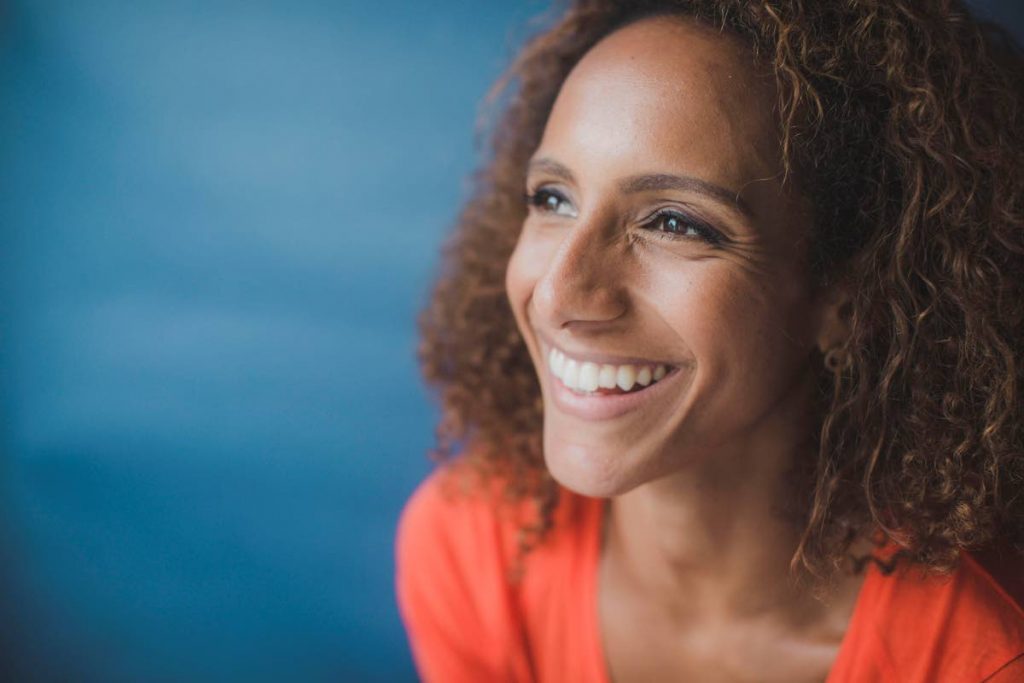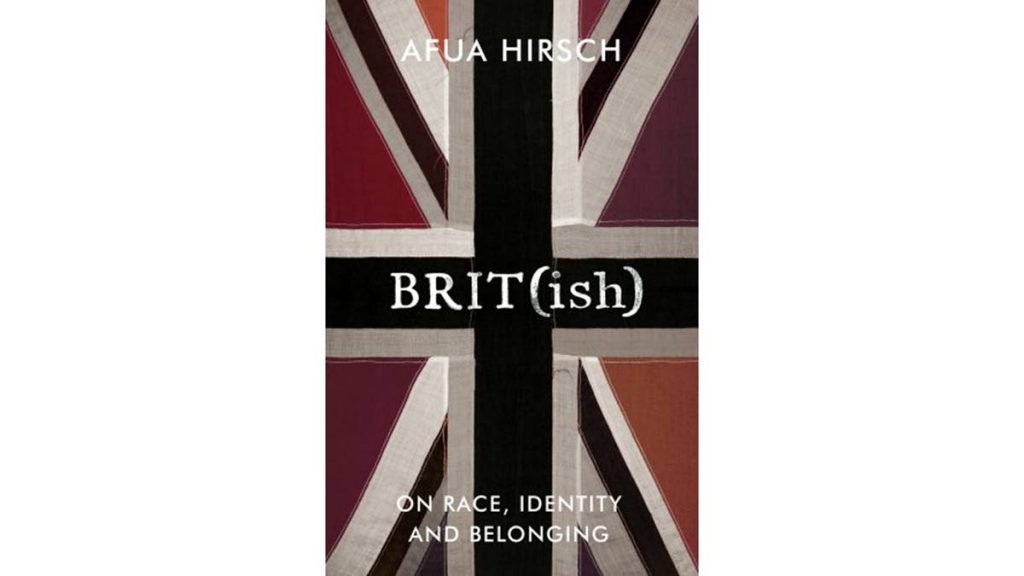Unpacking her heritage and culture

JOSHUA SURTEES
When Afua Hirsch sends emojis, she uses the light brown skin tone, third from the right. It’s the closest shade to her actual colour, but it is intriguing to know if she’s tempted to go darker.
She describes herself as black, mixed race and British and says that growing up in London she also felt “very Ghanaian.” Her identity is as fluid and mixed as the family histories and personal explorations that have shaped it.
In an article she wrote for the UK Guardian in 2012, Hirsch recalled an incident in her teens when she told her friend she was Jamaican. Her Ghanaian mother overheard and was devastated. At the peak of her youthful identity crisis she was embarrassed that being African wasn’t cool. In her recently published book Brit(ish): On Race Identity and Belonging, she also describes the parts of her life where her whiteness – Hirsch’s father comes from a Jewish family who escaped Nazi Germany – has, whether consciously or unconsciously, taken a front seat.

“I’ve been conditioned in the art of English manners, politeness, harmless banter and casual charm my whole life,” she writes in the opening chapter. “At the dinner table with my parents, in the classroom with my teachers, in my tutors’ studies, dining at the Inns of Court, in training for the Bar, at chambers parties...where you learn to send the subliminal message: don’t worry about the fact that I’m black, I won’t make you feel uncomfortable…I am completely non-threatening.”
Non-white people living in majority white societies will recognise this reality, though it is easier for some to transition than others. Hirsch is a highly educated, successful, middle-class British woman, which can open up doors that transcend race. Her ethnic background is also hard to place, which can be useful but awkward. In her own country, she is constantly asked where she’s from.
“It’s funny to be here, because this is the only part of the world where I actually look like I could be from here,” she said at the Bocas Lit Fest two weeks ago. “It’s an unusual experience to feel I can blend in.”
Hirsch grew up in the very white suburb of Wimbledon, where looking different – particularly as a girl questioning her own black beauty – was a difficult experience. In her book she recalls being told to stay away from the shop her friend worked in, because she was black and it was bad for customers.
The incident was clearly a pivotal moment in her life and her relationship with Britain. Like many non-white people, she has questioned whether she really belongs there and truly feels British.
“I felt very conscious of my difference, and the explanation for my difference was my Ghanaian heritage,” she explains. “When you’re focused on the source of your difference, you start gravitating towards that as your source of identity.
“But as soon as I got to Ghana I realised how British I am.”
At Bocas, she noticed that many of the attendees from across the Caribbean were white and pointed out that the white Caribbean is still an unexplored concept to most Brits.
“It’s interesting how white privilege transcends here,” Hirsch said, “because obviously they are in the minority, but there’s a history. They’re not a monolithic group, I know.
“I stayed at Chris Blackwell’s place in Jamaica, Goldeneye: he’s turned it into a super luxury resort. In the rooms they give you a bottle of Blackwell’s rum and on the back of the bottle it says ‘Chris Blackwell’s family have been proudly making rum in Jamaica for 400 years’ and it’s like, I wonder how they managed to do that! I wonder who the workforce was!” she jokes.
“That’s not a proud family history, that’s a slavery history. Your daughter still owns all this land, they’re still one of the richest families in Jamaica. It’s just like in Britain, they’ve rewritten it as this sanitised history. I didn’t know how much of the land in Jamaica is still owned by rich white Jamaicans.”
She’s only just got off the plane, but already Hirsch has got the lowdown on the wealth and status dynamics here in Trinidad too.
“I’ve heard about the Syrian one per cent,” she says. “And it’s interesting because it’s the same in West Africa. Syrians and Lebanese own all the businesses and keep themselves separate.”
She’s also picked up on the rough treatment of Venezuelan refugees in TT, an echo of the nationalism she has seen in other wealthy Caribbean islands.
“The level of xenophobia in the Bahamas towards Haitians and Dominicans is very Trumpian. Any country that feels its prosperity threatened by poor migrants can easily fall into that.”
The relationship of racial hierarchies in postcolonial and metropolitan societies is key to her work. While insidious racism limits many people of colour from achieving their potential, it hasn’t held her back. But what’s so essential about what Hirsch is doing with her book Brit(ish) is that by using it to expose the many forms of historic and contemporary racism that are often not acknowledged, let alone challenged, she is ensuring that the conversation started by writers like CLR James, Maya Angelou, Stuart Hall, Buchi Emecheta and Paul Gilroy is not lost on millennials and future generations.
Privately educated in London, she later studied at Oxford, interned at the UN in New York, then worked in Senegal for two years at George Soros’ philanthropic Open Society Institute. She has worked as a lawyer, BBC journalist and now an author. After having her daughter, she moved to Accra, Ghana to work as the UK Guardian’s West Africa correspondent.
Her mother’s family originates from Kumasi, the city a bumpy six-hour drive north from Accra that was once the seat of the Ashanti Kingdom. In 1895, the British army general Robert Baden-Powell attacked Kumasi and drove its people out, including Hirsch’s third great-grandmother.
“A lot of Jamaicans came from the Ashanti region,” she says. “When I went to Manchester in Jamaica, there’s a lot of Maroon villages around there. It freaked me out how much some of the things resonated with Ashanti culture. I was at a funeral and they were all wearing black and red and nobody could tell me why, they just said, ‘That’s what we do.’ Those are the Akan funeral colours.”
In Dakar, she lived next door to singer Youssou N’Dour’s wife.
“He had different wives in different houses, but his favourite wife lived next door to me.”
Her life is a rich tapestry and she’s currently considering whether to live abroad again. But for now, fascinatingly, she lives on the street where she went to school, at the end of her parents’ road.
“After spending my whole life complaining about Wimbledon. I’ve gone back there,” she says smiling. “My daughter goes to the same school I went to.”
Ideologically, she had wanted her black daughter to grow up in a place where she could “fit in” – like Ghana – but now her daughter is now very much a Wimbledonian, and there is a sense in the way Hirsch talks about it that she finds comfort in raising her family where she herself grew up.
It is after all, and for all its flaws, her home.

Comments
"Unpacking her heritage and culture"